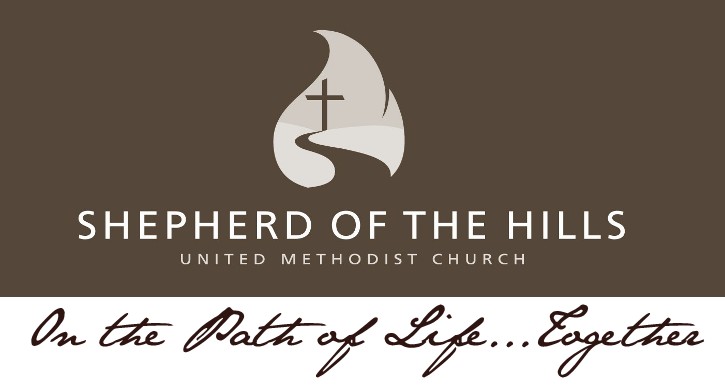Jul 29, 2009
Destination:Unknown Pictures!
Jul 24, 2009
Meet Your Maker, Vol. V (The Long Awaited One)
Jul 23, 2009
Seven Years
7 If there is a poor man among your brothers in any of the towns of the land that the LORD your God is giving you, do not be hardhearted or tightfisted toward your poor brother. 8 Rather be openhanded and freely lend him whatever he needs. 9 Be careful not to harbor this wicked thought: "The seventh year, the year for canceling debts, is near," so that you do not show ill will toward your needy brother and give him nothing. He may then appeal to the LORD against you, and you will be found guilty of sin. 10 Give generously to him and do so without a grudging heart; then because of this the LORD your God will bless you in all your work and in everything you put your hand to. 11 There will always be poor people in the land. Therefore I command you to be openhanded toward your brothers and toward the poor and needy in your land.
Within
20-21 God can do anything, you know—far more than you could ever imagine or guess or request in your wildest dreams!
He does it not by pushing us around but by working within us, his Spirit deeply and gently within us.
During my seminary years, I had the amazing privilege of taking a class taught by Archbishop Desmond Tutu.
I'll always remember many things that he had to say. He is a breathing piece of history, and his life is a testament to how love and justice can always overcome hatred, oppression and darkness.
Today's scripture makes me think of what he told us about how God relates to people.
"God is a gentleman," he said. "He does not force himself on anyone."
In my life as a pastor, I've encountered lots of folks who seem to want God to abuse them. They look for an authoritarian who will force and dictate. They want to be overpowered by God.
That's just not the case. Even in God's most overwhelming appearances in scripture, he still chooses to leave us humans a choice.
When we choose to allow him, he works within us. What a beautiful thing that is. And, it's the only way to real, lasting transformation.
Grace & Peace,
Adam
Jul 22, 2009
Stupid fast food
1 Sickening and bloated, they gas, "God is gone."
Their words are poison gas,
fouling the air; they poison
Rivers and skies;
thistles are their cash crop.
2 God sticks his head out of heaven.
He looks around.
He's looking for someone not stupid—
one man, even, God-expectant,
just one God-ready woman.
3 He comes up empty. A string
of zeros. Useless, unshepherded
Sheep, taking turns pretending
to be Shepherd.
The ninety and nine
follow their fellow.
4 Don't they know anything,
all these impostors?
Don't they know
they can't get away with this—
Treating people like a fast-food meal
over which they're too busy to pray?
5-6 Night is coming for them, and nightmares,
for God takes the side of victims.
Do you think you can mess
with the dreams of the poor?
You can't, for God
makes their dreams come true.
7 Is there anyone around to save Israel?
Yes. God is around; God turns life around.
Turned-around Jacob skips rope,
turned-around Israel sings laughter.
Have you ever said it?
You can admit it. It happens to almost everyone. In our most human and least spiritual moments, we definitely think it, and maybe say it.
"God is gone."
It's not true, but we can feel that way. What is our spiritual state at that moment?
We like to use words like, "frustrated," "disillusioned," "broken," "angry" or "hurt." Those are good words, and they probably are all fair descriptions of what goes on inside us sometimes.
But how does Psalm 14 describe us in those moments?
sickening
poisonous
bloated
foul
stupid
pretentious
impostors
too busy
You know, I may not like hearing the words in that list...but I hope I remember them.
The next time we're tempted to say, "God is gone," just remember: don't be stupid.
Spiritual food isn't fast. It's slow, and it's the good stuff. It's the real stuff.
Grace & Peace,
Adam
Jul 14, 2009
Flickr Update!
Jul 8, 2009
Forever

Jul 3, 2009
Meet Your Maker, Vol. IV
Jul 2, 2009
Well
30At the same moment, Jesus felt energy discharging from him. He turned around to the crowd and asked, "Who touched my robe?"
"If I can put a finger on his robe..."
What amazing faith!
But maybe the most incredible part of her statement is its conclusion..."I can get well."
How many times have I met with people who just didn't believe that they could "get well." It's not just a matter of physical illness. Folks all over have decided that there are spiritual and emotional broken places that they'll carry to their graves.
They haven't even begun to consider how to "put a finger on his robe," because they're not convinced that even God can make them well. The anger will never subside. The loneliness will never go away. Joy will never come. Pain will never be made easier.
If we can learn anything from the amazing woman in this story...maybe it's the truth of our own answer to that question. Can we get well?
Faith always says we can.
Grace & Peace,
Adam
Jul 1, 2009
Heart



